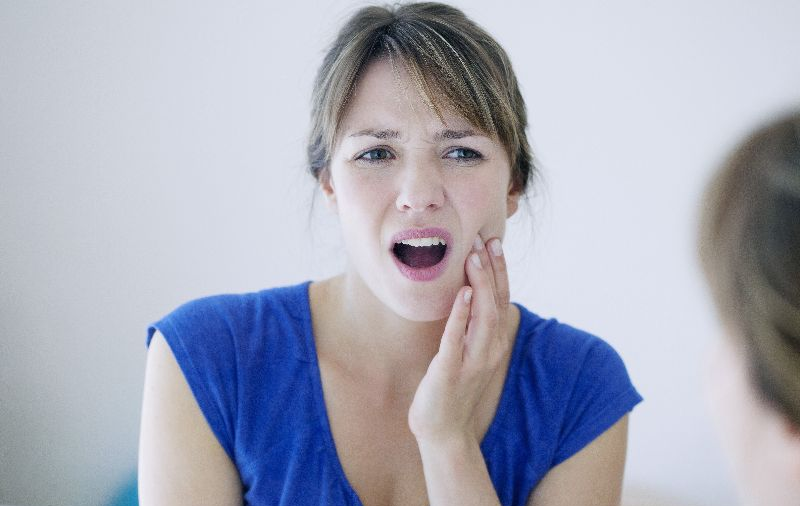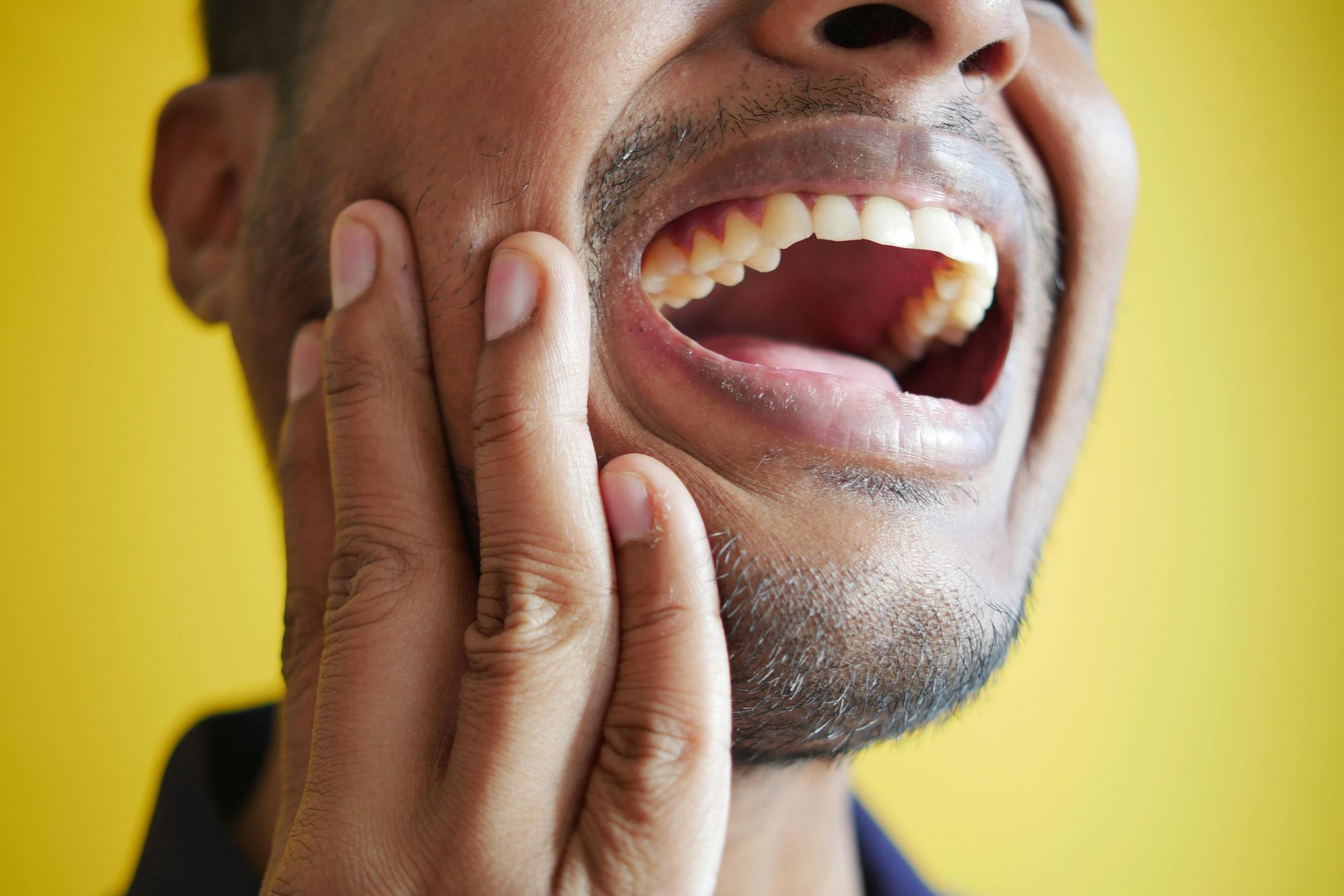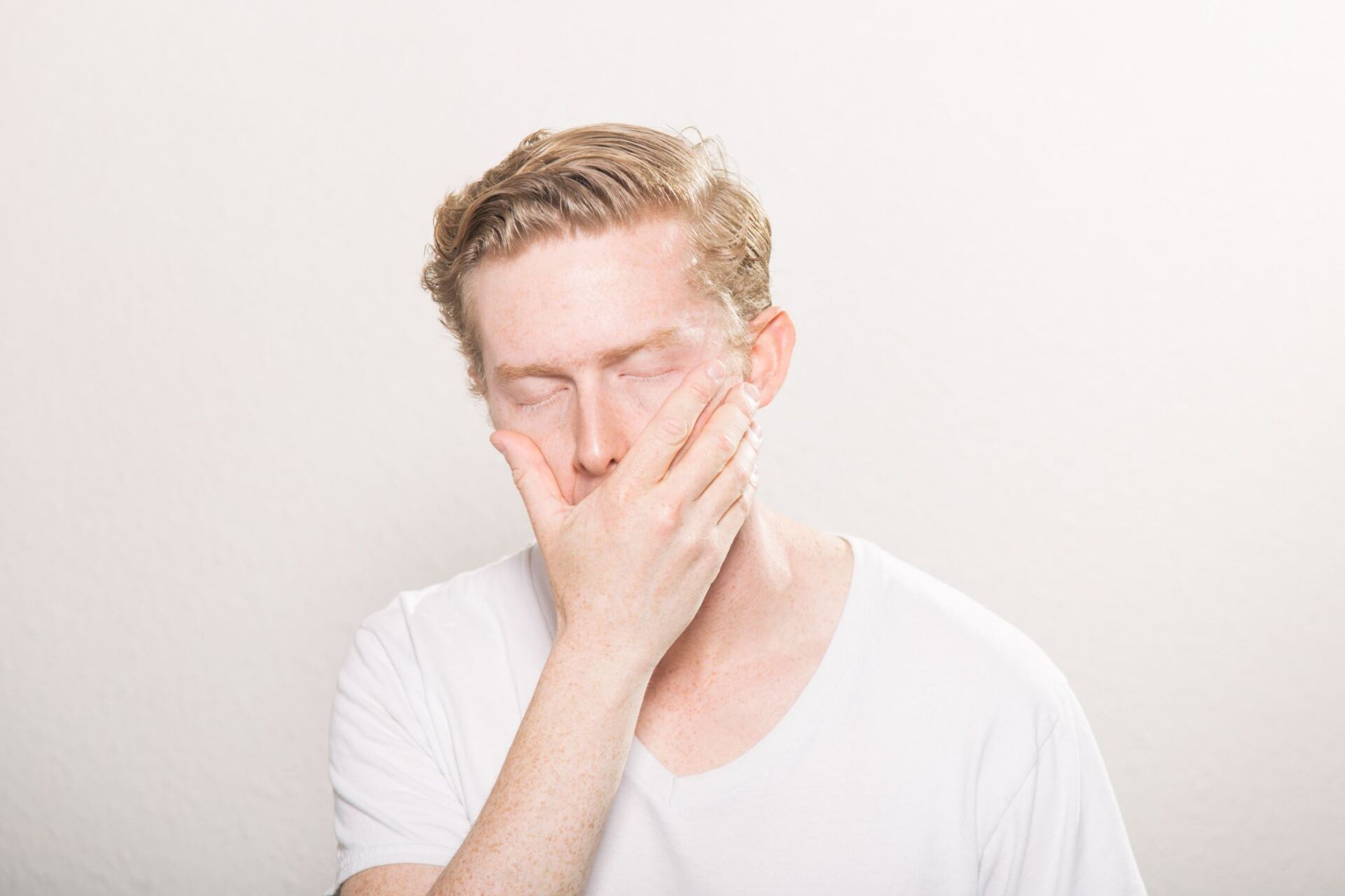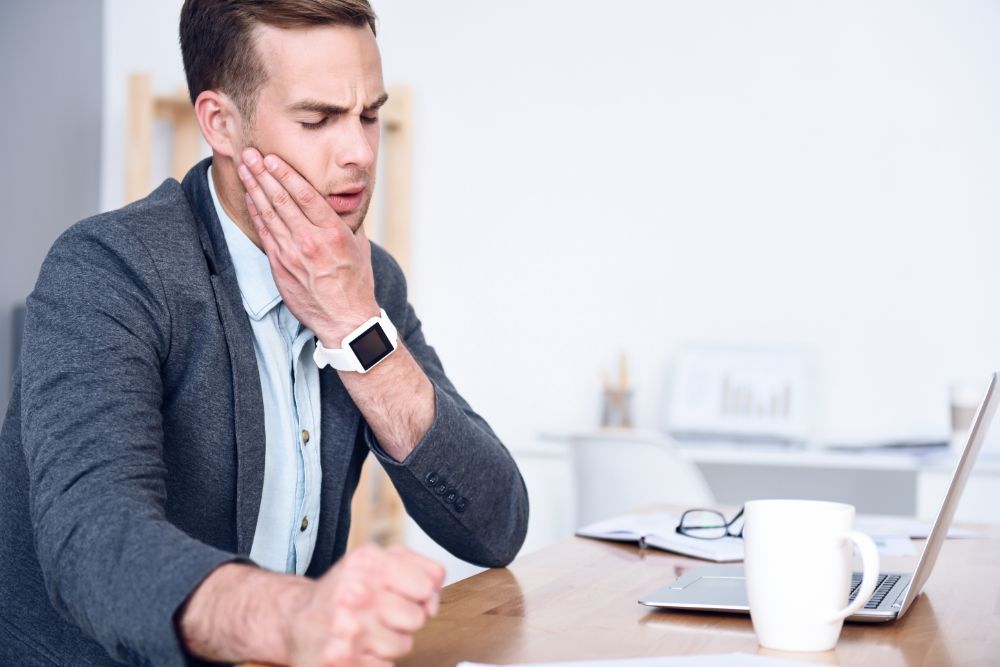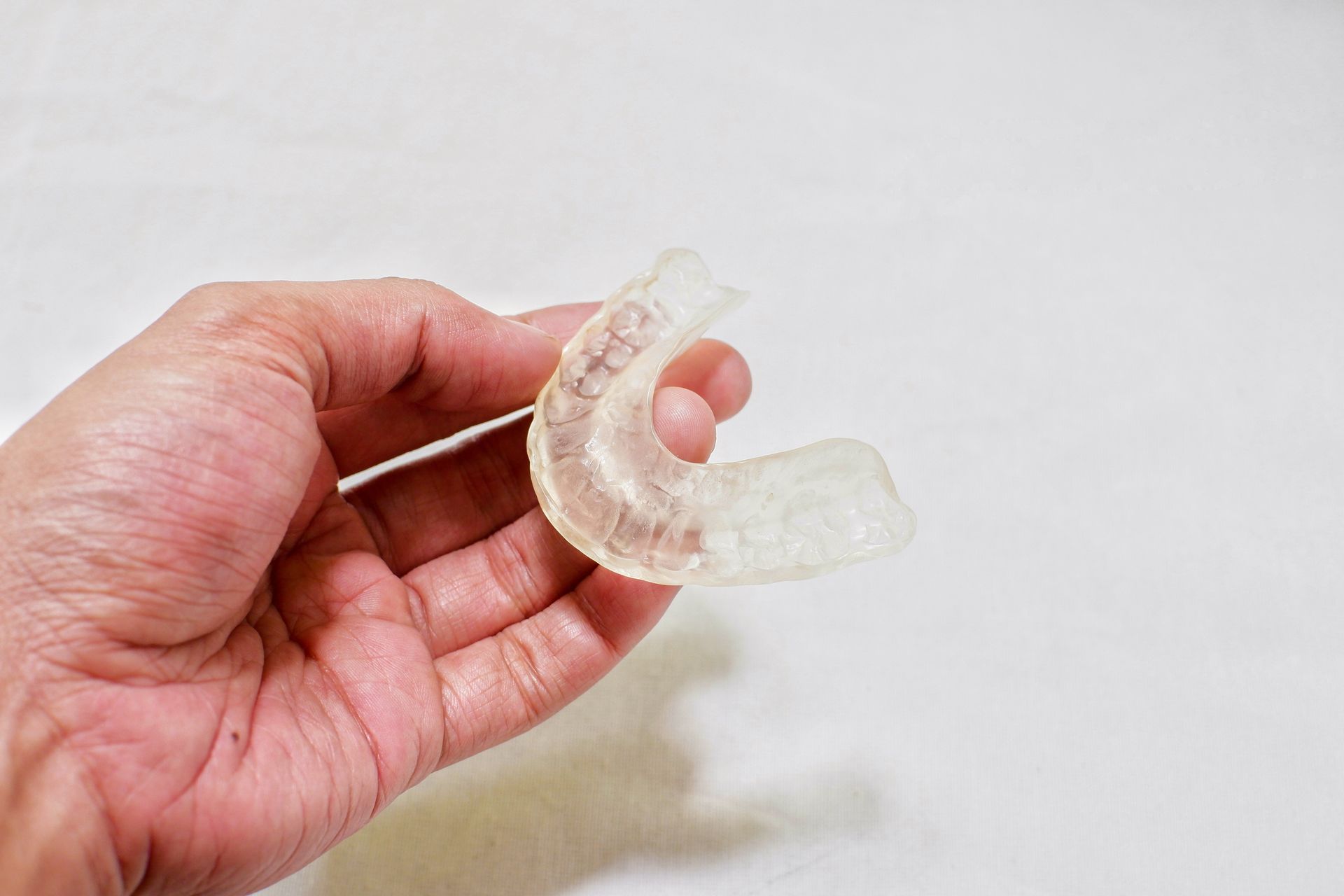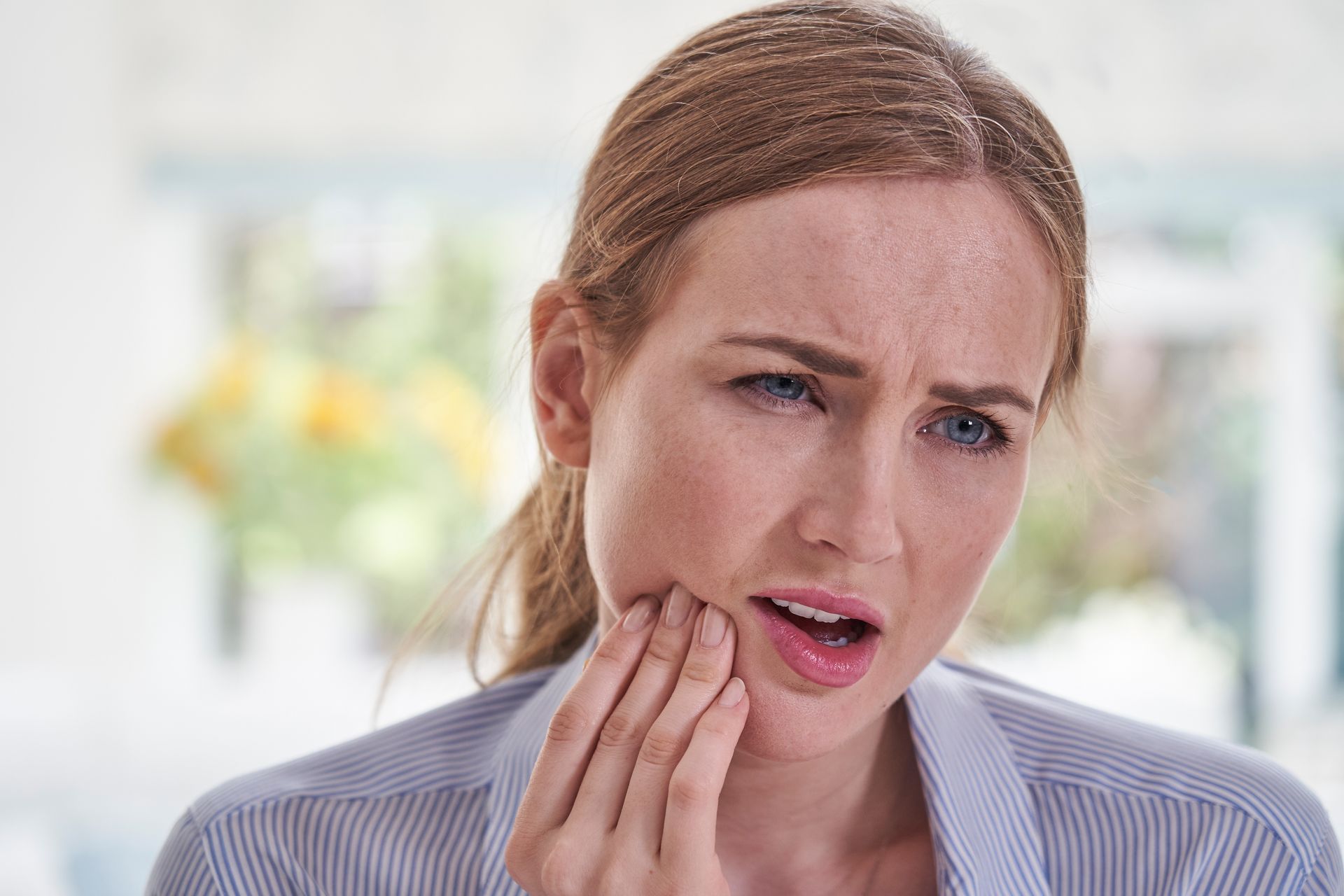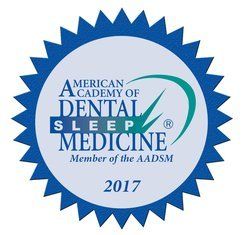Why Your Jaw is Clicking and Popping: What You Need to Know
Updated: 03/26/2025
Jaw clicking and popping often occurs when the temporomandibular joint (TMJ) is misaligned or experiences strain. It can result from behaviors like teeth grinding, injuries, arthritis, or stress and may indicate other underlying TMJ disorders that require treatment.
Hearing clicking and popping noises when you move your jaw can be unsettling, especially if it is happening frequently and accompanied by pain or other symptoms. These popping and clicking sounds come from the temporomandibular joint (TMJ), which connects your jaw to your skull. If your TMJ joint becomes misaligned, strained, or dysfunctional in other ways, the cartilage disc that cushions the joint can will begin to shift and become displaced, clicking or popping as it snaps in and out of place.
While the occasional popping might not be a cause for concern, frequent or painful popping and clicking may be an indication that there is an underlying issue with your TMJ. Dr. Katherine S. Phillips and Dr. YC Joseph FischerHahm of Restore TMJ & Sleep Therapy in The Woodlands are TMJ specialists with nearly two decades of experience diagnosing and treating problems related to the TMJ, including popping and clicking. They have dedicated their practice to helping patients discover the best possible solutions for managing their jaw popping and clicking and achieving lasting relief from TMJ pain.
Understanding Jaw Popping and Clicking
The TMJ is a complex joint that controls the smooth opening and closing of your mouth; even minor misalignments can cause it to work improperly. When the TMJ joint or the muscles surrounding it are inflamed or out of alignment, you may experience pain and discomfort and hear clicking or popping noises, signs that the articular disc (the cartilage that cushions the jaw joint) is becoming displaced.
Jaw clicking or popping generally falls into one of two categories: occasional noises that happen during wide yawns or jaw stretching, and frequent popping or clicking that occur during everyday activities like chewing or speaking.
Jaw popping or clicking without pain is rarely cause for concern, but if it is accompanied by pain, other symptoms, or additional health conditions–including jaw pain, headaches, earaches, or neck pain–you may need to seek help from a TMJ specialist.
Common Causes of Jaw Clicking and Popping
There are several factors that can cause your jaw to start to pop or click. These include:
- Behavioral habits: Certain habits like excessive gum chewing, nail-biting, or clenching your jaw can strain the TMJ and lead to clicking. Also, many people grind their teeth while sleeping — a habit which you may not be aware of — and that can worsen your condition.
- Injuries: Trauma to the jaw or head can cause the joint to shift out of alignment. Even a minor injury or blow to the jaw can have long-term effects on the TMJ.
- Arthritis: Arthritis affects the joints in your body, including the TMJ. Conditions like osteoarthritis or rheumatoid arthritis can cause inflammation, stiffness, and clicking in the TMJ.
- Stress and anxiety: For many, when they are under high levels of stress, they may clench or grind their teeth unconsciously. This constant pressure on the TMJ causes strain and may lead to misalignment and popping noises.
- Sleep disorders: Sleep apnea and other sleep disorders can increase the likelihood of teeth grinding. As with stress, this is done unconsciously, and you may be unaware that you are grinding your teeth while asleep.
- Dietary factors: Chewing hard-to-eat foods like nuts, raw vegetables, or crunchy snacks can aggravate already painful symptoms by placing additional strain on the TMJ.
Associated Symptoms of Jaw Popping and Clicking
Jaw clicking may also be accompanied by a range of other symptoms. By reporting all your symptoms to your doctor, you can provide clues about the
underlying cause of the clicking or popping.
- Jaw Pain or Tenderness: Frequent pain when chewing or speaking could be a sign of a TMJ disorder.
- Limited Movement or Jaw Locking: Difficulty opening or closing your mouth may indicate a dysfunction of the joint.
- Headaches or Earaches: Since the TMJ is located near the ear, any strain or dysfunction with the joint can sometimes cause pain that radiates and feels like an earache, ear fullness, or tension headache.
- Orofacial Pain or Swelling: If there is inflammation in the TMJ, it can cause noticeable swelling and pain around the cheeks and other areas of the face and neck.
- Stress and Mental Health: Stress and jaw pain can create a painful cycle. Stress and anxiety can lead to grinding or clenching behaviors, causing jaw pain. Chronic jaw discomfort can then be a cause of further stress and mental distress.
Diagnosing the Cause of Your Jaw Popping and Clicking
If you experience persistent jaw popping, rather than the occasional noise when yawning, and especially along with pain or other symptoms, it’s a good idea to visit a TMJ specialist to see if you may be suffering from a disorder of the TMJ. Obtaining a proper diagnosis is critical for establishing the best and most comprehensive treatment plan, and typically involves a combination of methods.
The first step is usually a
physical examination. A dentist or TMJ specialist will feel the jaw area for tenderness, popping, or movement issues.
They will also review your
medical history. Discussing your habits, lifestyle, and history of any jaw injuries or arthritis can help pinpoint the cause.
Further, your doctor may order different
imaging tests. X-rays, CT scans, or MRIs can provide detailed images of the jaw structure and aid your doctor in identifying any abnormalities in the bones, joints, or soft tissues.
Treatment Options for Jaw Popping and Clicking
There are several treatments available that can help you manage jaw popping. They range from simple at-home remedies to professional medical interventions:
- Home Remedies: Some easy treatments at home can help relieve jaw pain and other symptoms. These include applying ice packs to reduce swelling, using heat to relax muscles, practicing gentle jaw stretches and exercises, and avoiding hard or crunchy foods.
- Medications: Your doctor may prescribe medications to help manage the pain and tension in your jaw, such as nonsteroidal anti-inflammatory drugs (NSAIDs), muscle relaxants, or even low-dose antidepressants.
- Splint Therapy: A dentist or TMJ specialist may provide a custom-made oral appliance to help prevent jaw clenching and grinding while you are sleeping.
- Physical Therapy: A physical therapist can guide you through appropriate exercises and techniques to improve your posture, as well as provide gentle massage and other treatments to reduce stress on the TMJ.
- Surgical Interventions: When more conservative treatments don’t work, your doctor may suggest surgical options like arthroscopy or open-joint surgery.
Each treatment has different benefits and limitations. For example, home remedies are ideal for mild cases but may not provide enough relief for more severe issues. Medications can reduce inflammation and relieve pain, but they do not address the underlying cause. Oral appliances are effective for protecting the teeth and reducing the amount of teeth grinding, but they must be worn consistently. Surgery can help severe cases but comes with risks and a recovery time of a few days to several weeks.
Long Term Outlook for Jaw Popping and Clicking
Managing jaw pain and clicking involves a commitment to reducing the strain on your TMJ and developing good habits. For some people, lifestyle changes are enough to free themselves from TMJ clicking and popping, but others may need ongoing treatments. Regular follow-ups with your healthcare provider or a TMJ specialist can help monitor your symptoms and evaluate the effectiveness of your treatment plan.
Find Relief from Jaw Popping and Clicking with Restore TMJ & Sleep Therapy
At Restore TMJ and Sleep Therapy in The Woodlands, we understand how frustrating and painful jaw popping and clicking can be. Our TMJ specialists are experts in not only treating the symptoms and pain of your jaw popping and clicking but also in identifying and treating the root cause so you can experience lasting relief. Dr. Phillips and Dr. FischerHahm at Restore TMJ & Sleep Therapy have the resources and expertise to develop a comprehensive, integrative plan that tackles the underlying causes of your jaw popping and clicking so your body can work the way it’s supposed.
Contact us today to learn more about treatment options and schedule a consultation.
Contact Us Today For A Consultation!
Contact Us
Thank you for reaching out to us at REstore TMJ and Sleep Therapy. We look forward to helping you. We will follow up within 24 hours for contact requests received during normal office hours Monday – Thursday. If you have submitted a request later in the day on Thursday – Sunday, we will follow up on Monday. If you would like to talk to us before we can get to your request, please feel free to give us a call at 281-296-6797 Monday – Thursday 8am – 4:30pm. Have a great day!
Regards,
Dr. Katherine Phillips and Staff
Please try again later.
REstore TMJ & Sleep Therapy P.A.
1001 Medical Plaza Drive,
Suite 200 | The Woodlands, TX 77380
281-296-6797
Dr. Phillips serves TMJ & Sleep patients in: The Woodlands TX | Spring TX | Conroe TX Tomball TX | Cypress, TX | Houston, TX | Kingwood TX | Humble, TX | Katy TX
© 2023 by REstore TMJ & Sleep Therapy | Terms Of Service & Privacy Policy | XML Sitemap
-2700x842-1920w.png)




